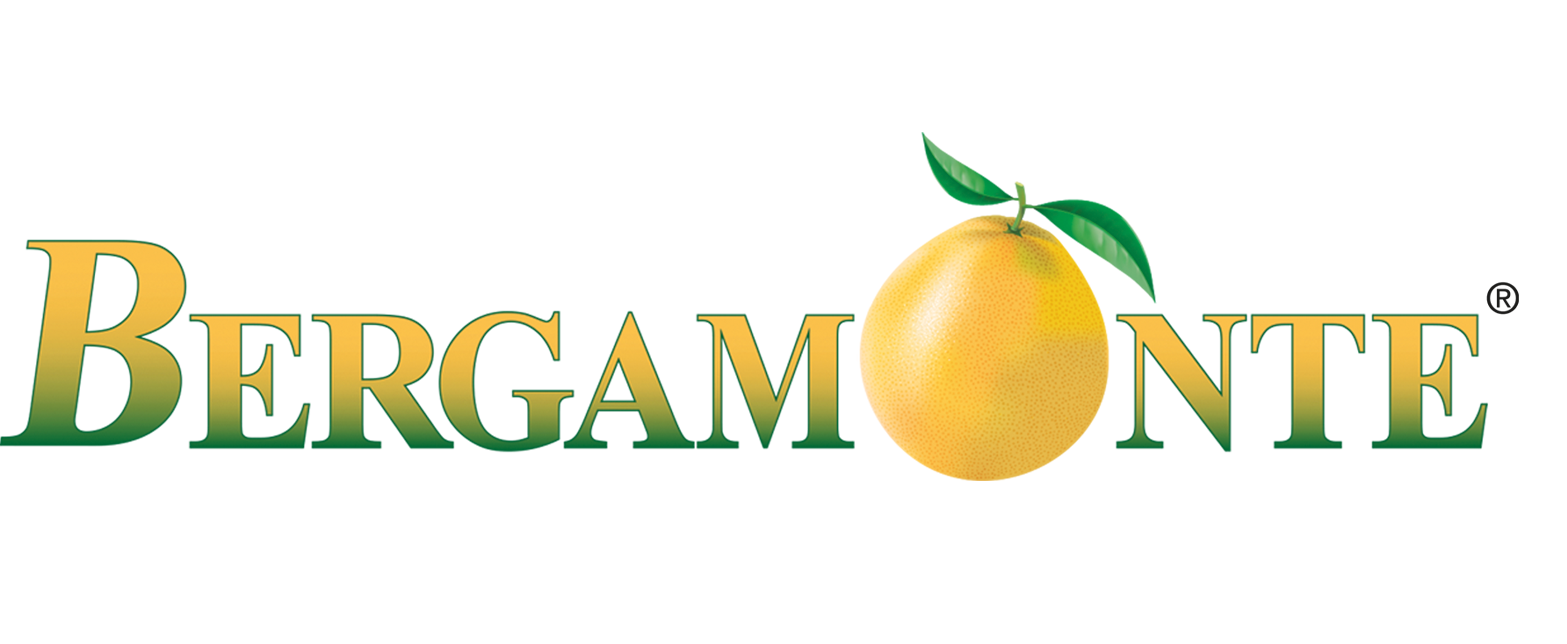Premier Ingredients
Bergacyn®
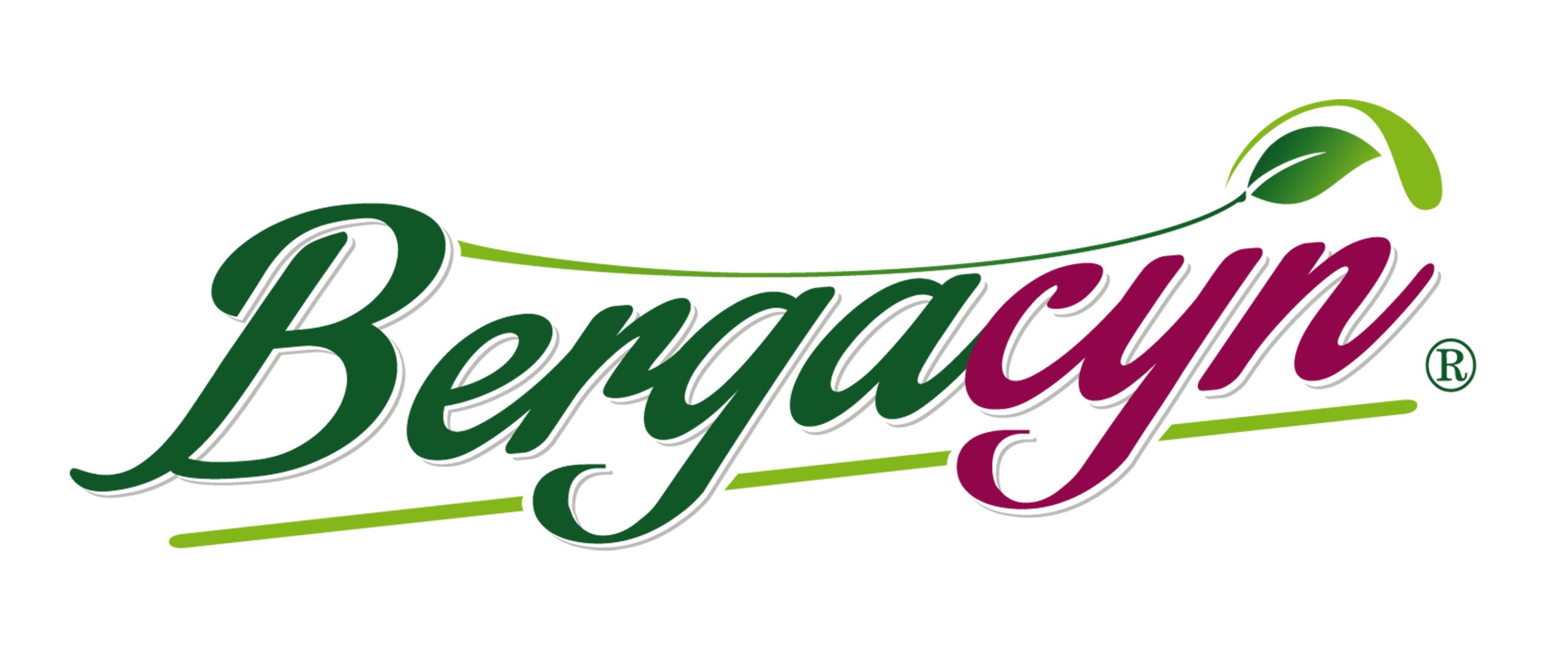
What is Bergacyn?
Patented, Standardized, & Clinically Proven
Bergacyn® is an innovative, patented combination of 50% Bergamot Polyphenolic Fraction (BPF®) plus 50% Cynara cardunculus extract. Bergacyn® is standardized to Citrus bergamia Risso (19% BPF® extract) and Cynara cardunculus (10% cynaropicrin). This unique combination has been awarded US Patent #11,311,594 B2.
Liver health is an area of wellness consumers do not consider when building a supplement regimen. But they should – and Bergacyn® is a powerful new liver support compound with research demonstrating its abilities.
Bergacyn® is a patented formula of Italian citrus bergamot (Citrus bergamia Risso) extract and wild Calabrian artichoke thistle, commonly known as cardoon (Cynara cardunculus) extract. Bergamot is a citrus plant that grows almost exclusively in the narrow coastal Reggio Calabria region in Southern Italy, due to sensitivity to the weather and soil conditions. Bergamot juice is rich in flavonoids and was traditionally recognized by the local population as a remedy for supporting healthy cholesterol levels and cardiovascular health.*
Cynara cardunculus has been cultivated in the Mediterranean since medieval times as a vegetable and for its medicinal benefits. The wild Calabrian artichoke thistle contains a unique combination of active compounds: cynaropicrin, silibinin, luteolin, chlorogenic acid, and other essential nutrients and minerals.
Traditionally, cardoon has been used for liver health, digestive health, cholesterol management, and blood sugar regulation. It is also used for headaches, cognitive health, lower GI insufficiencies, and as a liver tonic to promote a healthy digestive cycle.*
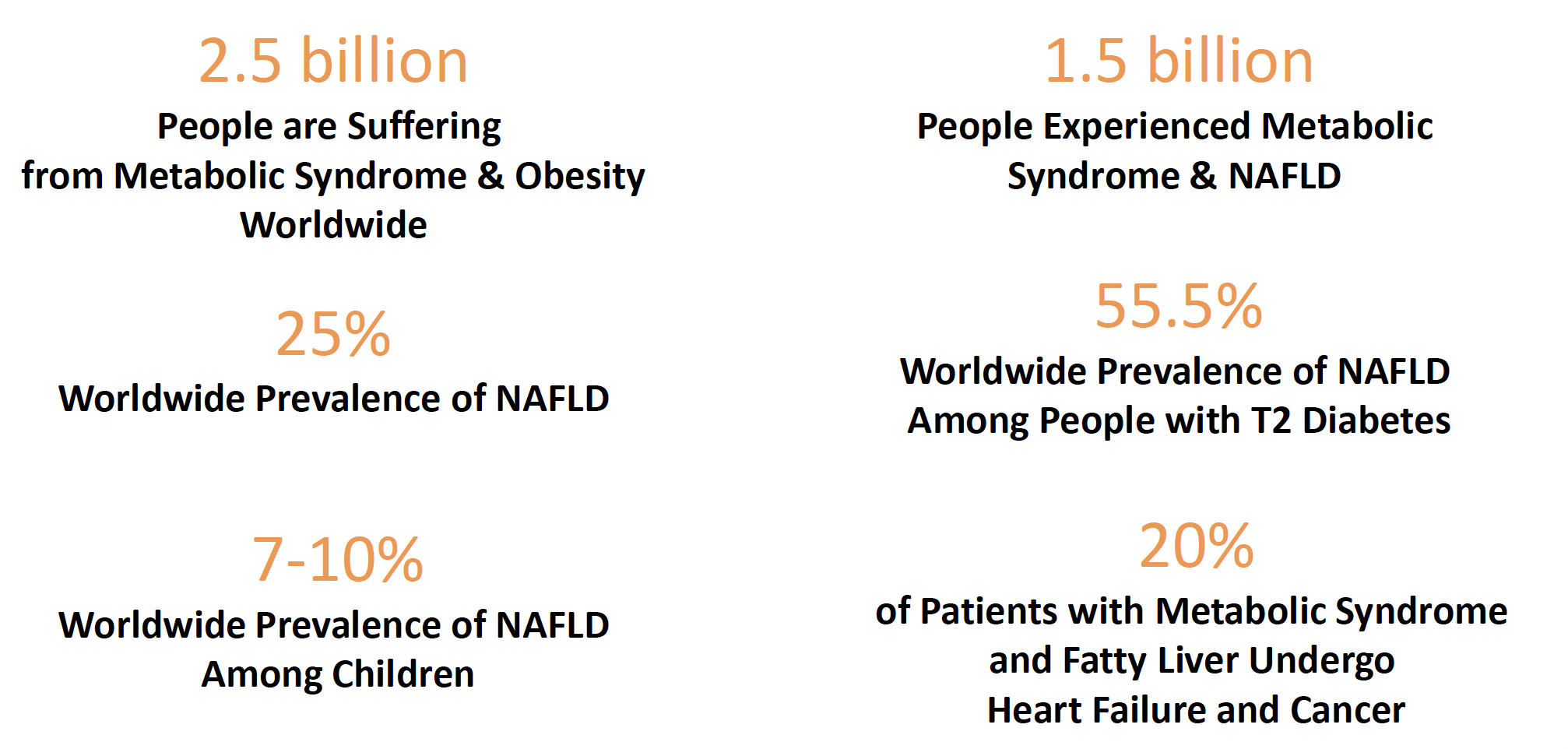
Benefits of Bergacyn®
Liver: Anatomy and Functions
- The liver performs over 500 functions such as fighting off infection and toxins, regulating blood sugar activity, and manufacturing proteins and hormones.
- The liver’s key components are the right and left hepatic ducts, hepatic portal vein, and common hepatic duct.
- A healthy adult liver weighs approximately 3 pounds.
- The liver holds approximately one pint of the body’s blood supply, or approximately 13%.
Johns Hopkins Medicine: www.HopkinsMedicine.org
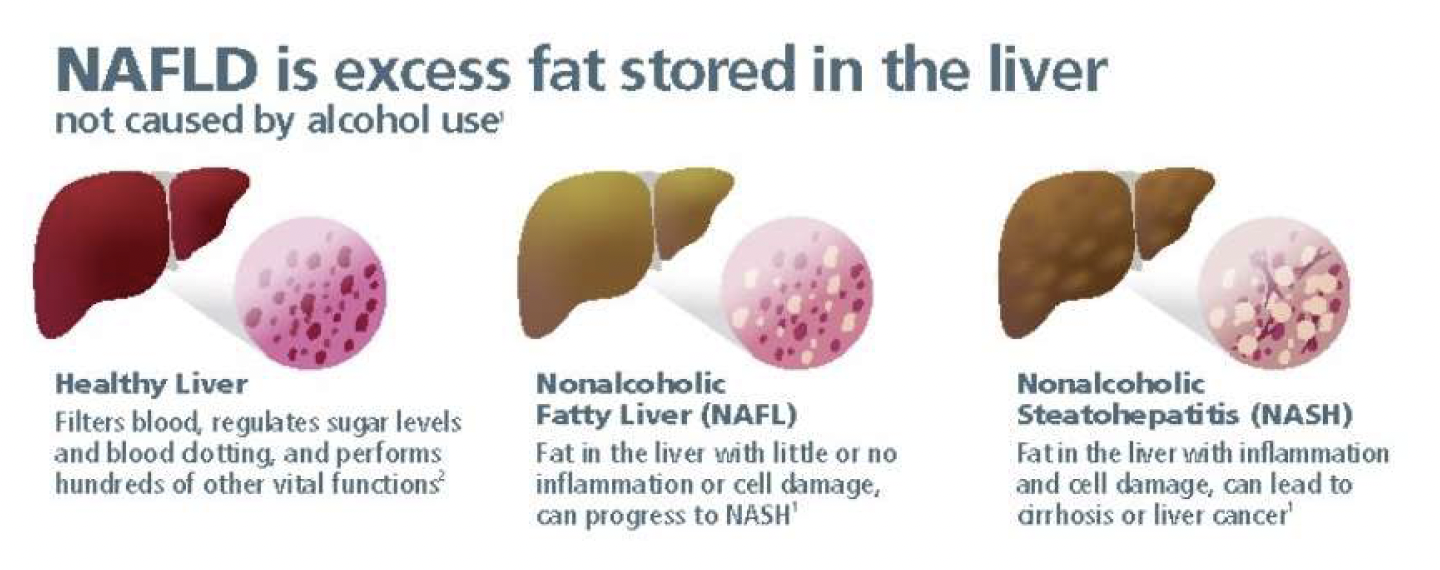
Bergacyn® Modes of Action …
Reduces Lipid Droplets
 The hallmark of insufficient liver function is triglyceride accumulation in the form of lipid droplets (LDs) in the liver. In a 2015 study published in The Journal of Nutritional Biochemistry, rats fed a cafeteria diet (CAF) and given 50 mg/kg/day BPF® for 3 months showed significant decrease in glucose (-11.5%#), triglycerides (-28.3% ##), total cholesterol (-19.3% #), c-LDL (-27.6% #), and total body weight (-9.5% #) compared to CAF alone.
The hallmark of insufficient liver function is triglyceride accumulation in the form of lipid droplets (LDs) in the liver. In a 2015 study published in The Journal of Nutritional Biochemistry, rats fed a cafeteria diet (CAF) and given 50 mg/kg/day BPF® for 3 months showed significant decrease in glucose (-11.5%#), triglycerides (-28.3% ##), total cholesterol (-19.3% #), c-LDL (-27.6% #), and total body weight (-9.5% #) compared to CAF alone.
Abnormal accumulation of LDs leads to lipotoxicity and is a factor in metabolic dysfunction. LDs are usually <1 μm in size; when liver gains more fat this is usually associated with the accumulation of larger LDs. BPF® can reduce fat amount in CAF rats by significantly decreasing total lipid content (−41.3%#), total LD area in the liver (-48.5%#), and LDs size in CAF livers. (# Statistically significant difference p<0.05, ## p<0.01)
Stimulates Autophagy In Liver
 Autophagy is a self-eating catabolic pathway that contributes to liver homeostasis by supplying energy in times of stress and by removing damaged organelles, misfolded proteins, and lipid droplets. CAF diet leads to the inhibition of hepatic autophagy, leading to reduced amounts of autophagy markers LC3II, Beclin 1 and Atg7 and by increased SQSTM1 and ADRP. Supplementation of BPF® showed the reversal of these autophagy markers.
Autophagy is a self-eating catabolic pathway that contributes to liver homeostasis by supplying energy in times of stress and by removing damaged organelles, misfolded proteins, and lipid droplets. CAF diet leads to the inhibition of hepatic autophagy, leading to reduced amounts of autophagy markers LC3II, Beclin 1 and Atg7 and by increased SQSTM1 and ADRP. Supplementation of BPF® showed the reversal of these autophagy markers.
The typical Western diet can impact liver structure and function. In a study published in Nutrients (Nov 2018), 21 rats were fed with CAF diet for 16 weeks to induce NASH. One group continued with CAF diet (CAF/CAF); two groups switched to SC diet, supplemented with or without BPF®. Diet change alone resulted in improved insulin sensitivity as reflected in reduction in HOMA-IR, reduction in body weight (-15%), steatosis, ballooning of hepatocytes and NAFLD score, but did not reduce inflammation. Supplementation of BPF® reduced hepatic lipid droplets (-70%), reduced blood triglycerides, and significantly reduced inflammatory cytokines IL-6. (# p>0.5 ## p<0.01 ### p<0.001)
Cholesterol & Glucose Balance
 In a study published in Nutrients (May 2020), rats fed with High Fat Diet (HFD) showed a significant increase in serum cholesterol, triglyceride and serum glucose, and was accompanied by increased body weight and liver steatosis. Supplementation with CyC 10 and 20 mg/kg resulted in significant reduction in serum glucose, total cholesterol, triglycerides, and body weight.
In a study published in Nutrients (May 2020), rats fed with High Fat Diet (HFD) showed a significant increase in serum cholesterol, triglyceride and serum glucose, and was accompanied by increased body weight and liver steatosis. Supplementation with CyC 10 and 20 mg/kg resulted in significant reduction in serum glucose, total cholesterol, triglycerides, and body weight.
Inhibits Fat Accumulation (Steatosis) in Liver Tissues
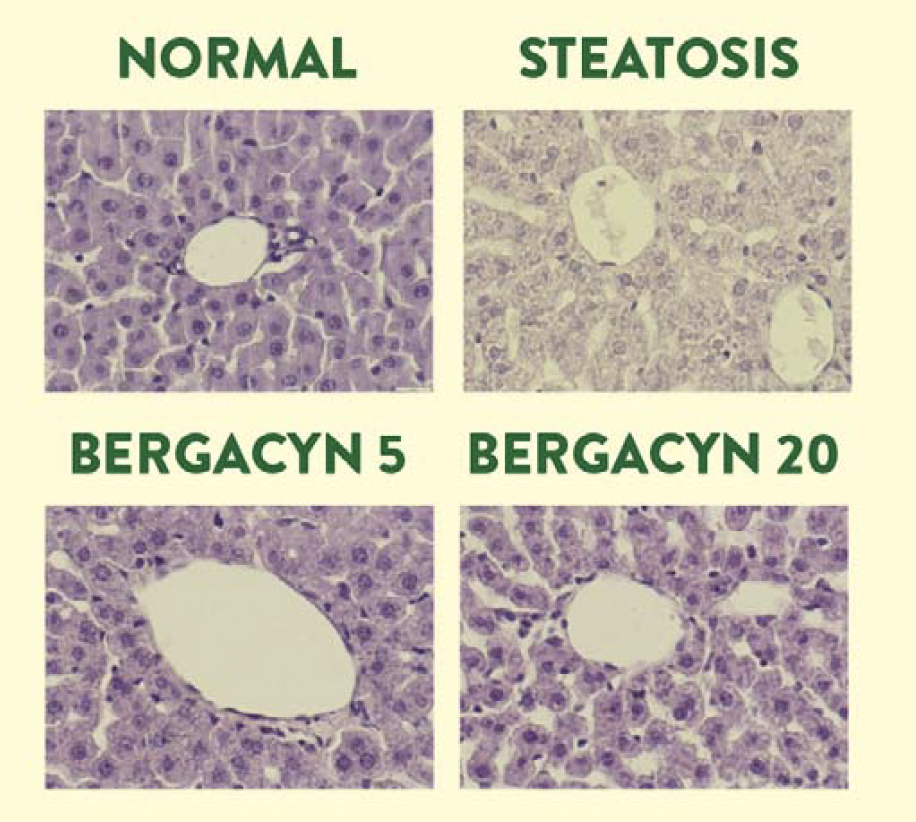
Reduces Liver Fibrosis By 40%
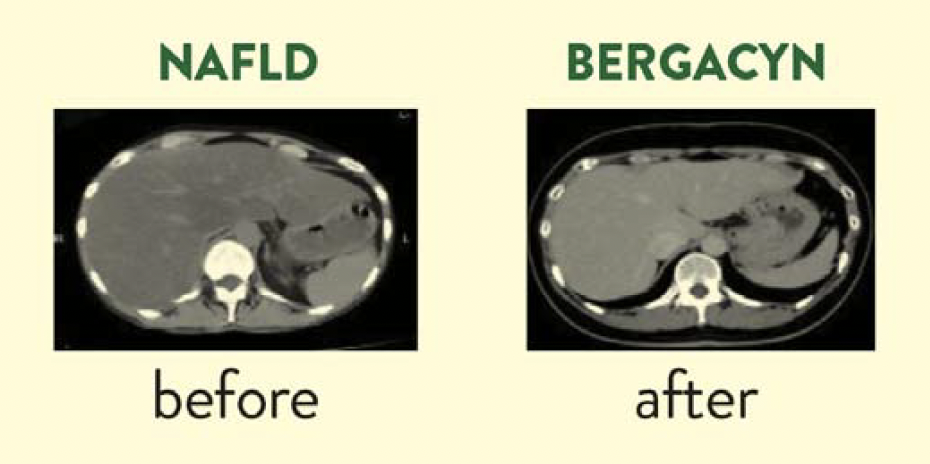
Browning of Adipose Tissue
Bergacyn®(50 mg/kg/day) given to WD SW-fed mice significantly reduced body weight loss and fat mass loss compared to WD SW-only group. This is accompanied by significant reduction in total cholesterol and LDL.
The decreased WAT levels were triggered by the up-regulation of PPARγ, and reduced NF-kB, the key regulator of pro-inflammatory cytokines, including TNF-α and IL-6, involved in FFA secretion, through adipocyte lipolysis, and insulin resistance. Bergacyn® increased weight of BAT tissue, antagonizing the whitening process through the suppressed expression of PPARγ.
Clinical Trial Results …
Synergistic Effect of Bergacyn® on Vascular Inflammation & Oxidative Stress In The Liver
In a 2020 randomized, double-blind, placebo-controlled clinical study, 80 adult subjects with liver dysfunction and unstable blood sugar levels were given either (a) placebo, (b) 300 mg/d BPF® Bergamot extract, (c) 300 mg/d Cynara extract, or (d) 300 mg/d Bergacyn® + 300 mg/d BergaFlow™. Serum measurements and liver ultrasound analyses showed Bergacyn® significantly reduced various liver enzymes and showed improvement in liver biomarkers.
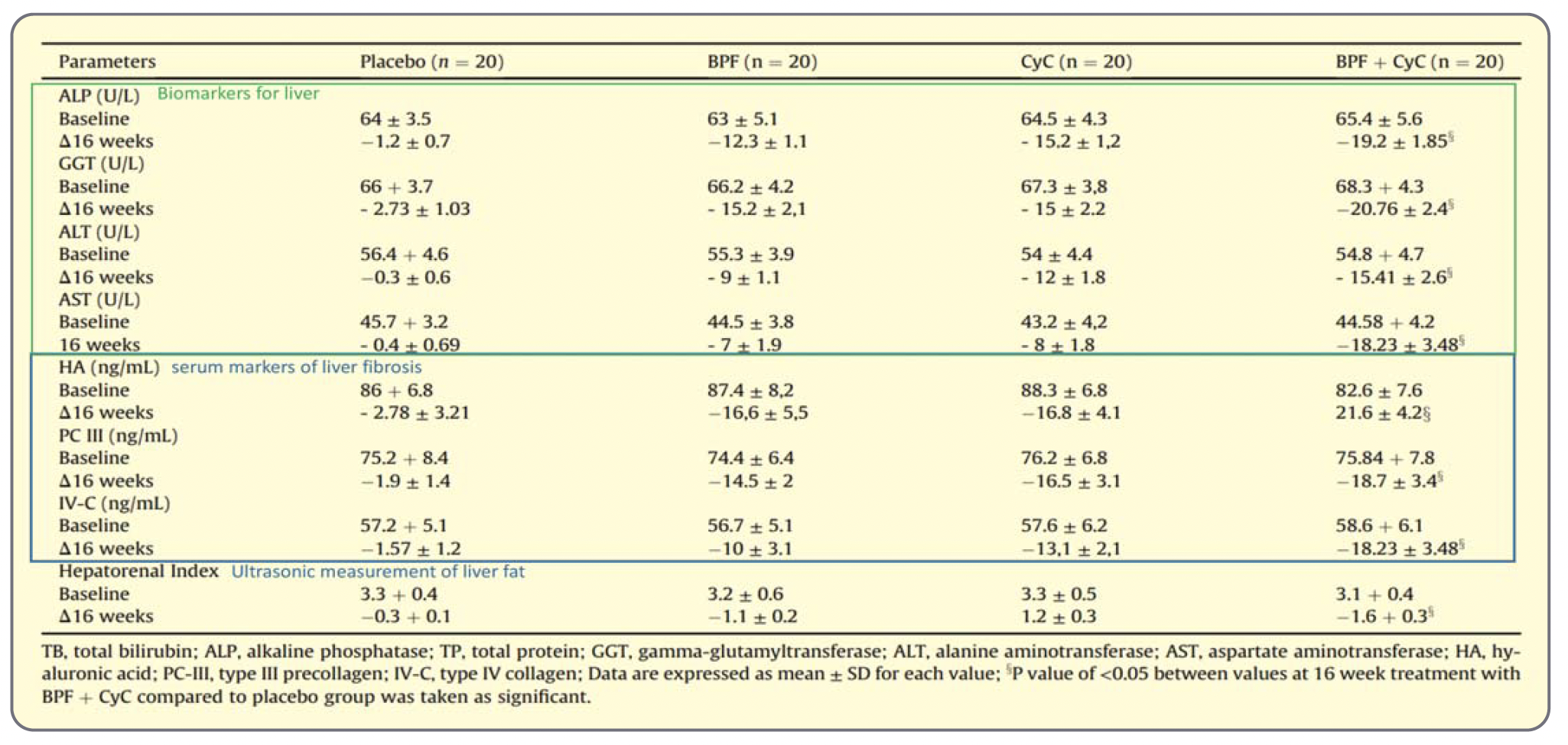
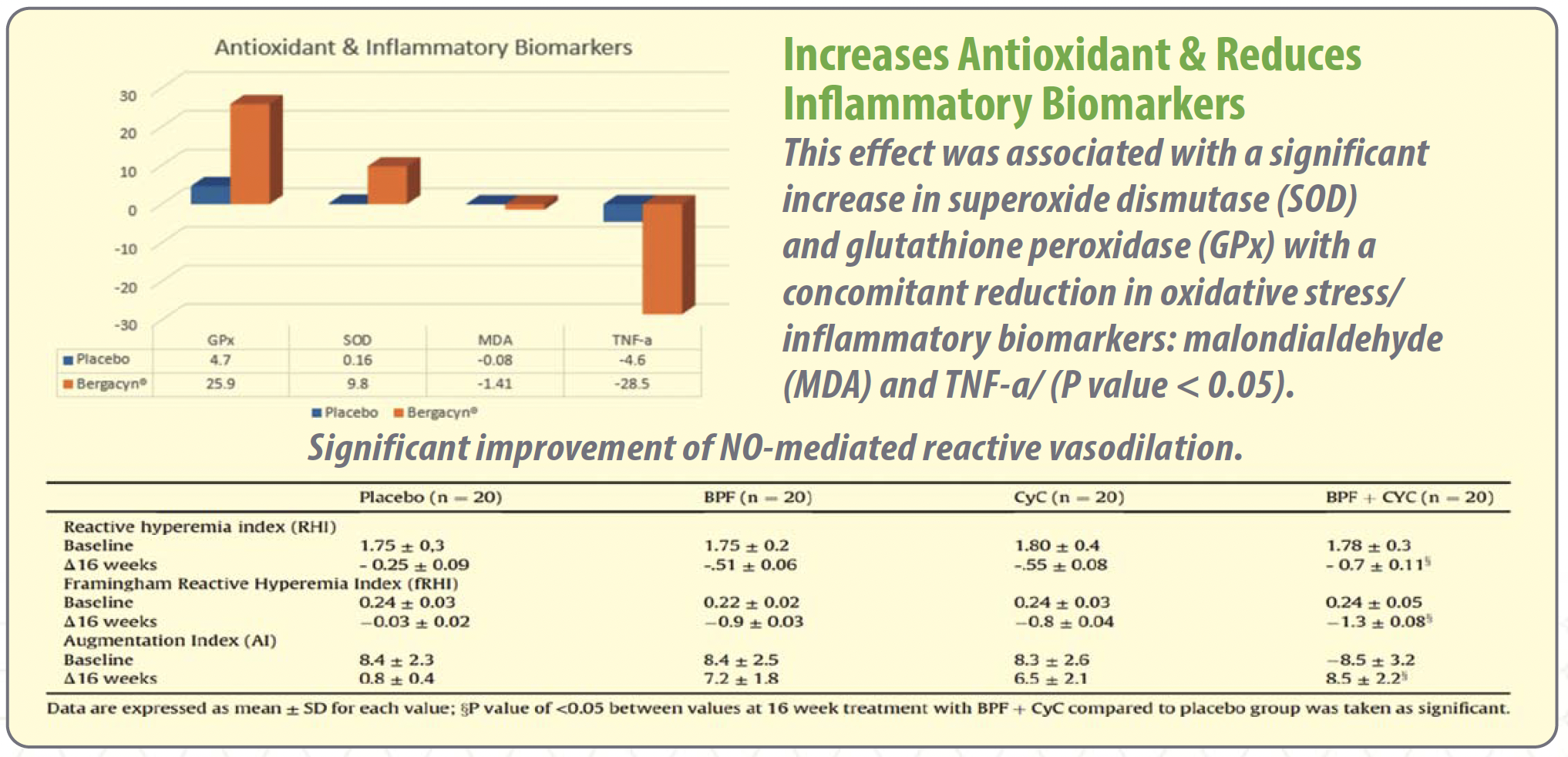
Randomized Clinical Trial: Bergacyn® Reduced Liver Adopisity and Body Weight in Non-diabetic Individuals Aged >50
In a double-blind, placebo-controlled clinical trial, 102 participants with excess liver fat were given 300 mg of Bergacyn® + 300 mg of BergaFlow™ or placebo for 12 weeks. The researchers found a significant reduction in body weight, BMI, and liver fat content in the Bergacyn® group compared to placebo.
In the sub-group analysis, CAP score was significantly reduced in those >50 years old, with android obesity, and overweight/obesity. The percentage CAP score reduction was statistically significant only in those over 50 years (44% vs. 78%, p = 0.007).

